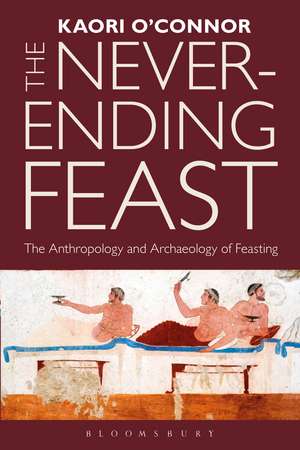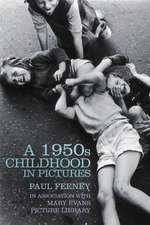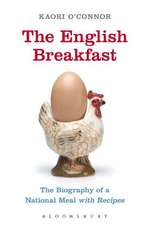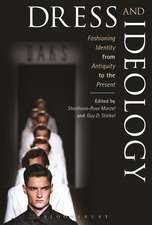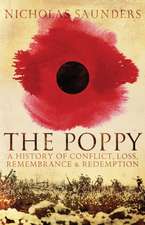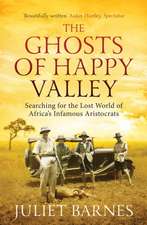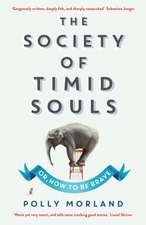The Never-ending Feast: The Anthropology and Archaeology of Feasting
Autor Dr Kaori O'Connoren Limba Engleză Paperback – 25 feb 2015
| Toate formatele și edițiile | Preț | Express |
|---|---|---|
| Paperback (1) | 180.44 lei 3-5 săpt. | |
| Bloomsbury Publishing – 25 feb 2015 | 180.44 lei 3-5 săpt. | |
| Hardback (1) | 598.84 lei 6-8 săpt. | |
| Bloomsbury Publishing – 25 feb 2015 | 598.84 lei 6-8 săpt. |
Preț: 180.44 lei
Preț vechi: 223.15 lei
-19% Nou
Puncte Express: 271
Preț estimativ în valută:
34.53€ • 36.18$ • 28.54£
34.53€ • 36.18$ • 28.54£
Carte disponibilă
Livrare economică 21 martie-04 aprilie
Preluare comenzi: 021 569.72.76
Specificații
ISBN-13: 9781847889256
ISBN-10: 1847889255
Pagini: 256
Ilustrații: 21 bw illus
Dimensiuni: 156 x 234 x 18 mm
Greutate: 0.43 kg
Editura: Bloomsbury Publishing
Colecția Bloomsbury Academic
Locul publicării:London, United Kingdom
ISBN-10: 1847889255
Pagini: 256
Ilustrații: 21 bw illus
Dimensiuni: 156 x 234 x 18 mm
Greutate: 0.43 kg
Editura: Bloomsbury Publishing
Colecția Bloomsbury Academic
Locul publicării:London, United Kingdom
Caracteristici
Unpacks the meanings and significance behind feasts and feasting, from showing how world history has shaped and has been shaped by feasts, to debating the morality and immorality of feasting
Notă biografică
Kaori O'Connor is a Senior Research fellow in the Department of Anthropology at UCL, UK, author of The English Breakfast: The Biography of a National Meal (Bloomsbury, 2013) and winner of the Sophie Coe Prize for Food History (2009).
Cuprins
AcknowledgementsList of Illustrations1. Introduction: Invitation to the Feast2. Mesopotamia: The Pursuit of Abundance3. The Assyrians and Achaemenid Persians: Empires of Feasting4. The Greeks: Now Let Us Hasten to the Feast5. Eurasia: The Mongols-An Empire Built on Drinking6. China: The Hidden History of Chinese Feasting 7. Japan: Banqueting Beyond a Bridge of Dreams8. Epilogue: After the FeastReferences and BibliographyIndex
Recenzii
Feasting, anthropologist O'Connor (Univ. College London) argues, has received less attention but is an ideal-and universal-phenomenon that reflects key elements of social life: issues of power, status, and competition; celebrations of the sacred and secular, place and time; mobilization of people and natural resources; and much more. The author draws on textual and museum sources to write an anthropology of history that focuses on sumptuous meals, their participants, and the historical context. Six core chapters cover feasting practices from ancient to early modern times practiced by Mesopotamians, Assyrians and Achaemenid Persians, Greeks, Mongols, Chinese, and Japanese. Each case study presents detailed snapshots of historical moments illuminated by feasts understood in cultural context . Readers are left with a clear idea of the importance of feasts in human history. Summing Up: Recommended. Most levels/libraries.
Food is not only good to eat and, as Lévi-Strauss insisted, good to think with but also-to paraphrase Clausewitz-the continuation of politics by other means . It is also perhaps more true in the past, in the glory days of empires and emperors, than today, as illustrated in Kaori O'Connor's new survey of classical feast practices . the book is interesting not only for what it teaches about the past but also what it suggests about the applicability of anthropology to the past and not only to sites where we can do ethnography.
The Never-Ending Feast provides a well-rounded and engaging introduction to food studies, the feasting practices of antiquity, and their social capital for undergraduates and scholars. The images throughout the book are well chosen and reproduced, and typographical errors are minimal. The range of sources used is extensive, and O'Connor's skillful contextualization of them and the associated religious and political ideologies demonstrates the potential these 'remains' of ancient feasts have . this text is an excellent introduction to anthropological approaches to food and ancient feasting.
O'Connor's case studies, ... informed by historical texts, [are rich] in the description of etiquette and ritual. There is also some fascinating comparative material.
The Never-Ending Feast is a timely and detailed book on the anthropology and archaeology of feasting in six regions . The richness of the descriptions and the breadth of topics covered in each case study are impressive. . the effort of each chapter is to immerse the reader in ancient feasts, just as the anthropologist would attend feasts in the field . this method might leave the average reader a bit overwhelmed and bewildered, but O'Connor provides enough guidance to show readers the historical trends, complex meanings, and cultural differences that characterize this rich cross-section of feasts.
Kaori's pioneering work draws on anthropology, archaeology, and history to look at the dynamics of feasting among the great societies of antiquity renowned for their magnificence and might.
Read this book and you'll never look at museum artefacts in the same way again. In this engrossing volume, Kaori O'Connor breathes life into all those cauldrons and cups, bowls and beakers, used during the great banquets and celebrations of Antiquity.
Kaori O'Connor reminds us that the sharing of food is intimately entangled with the formation (and destruction) of political alliances, the structures of inequality, the emergence of religious practices, and indeed the philosophy of life itself.
The Never-Ending Feast is richly detailed, fascinating, sumptuous. Discussing feasts not just as events but as fundamental elements of economies and cultures, O'Connor revises our notions of commensality and of the dynamics of feasting.
Food is not only good to eat and, as Lévi-Strauss insisted, good to think with but also-to paraphrase Clausewitz-the continuation of politics by other means . It is also perhaps more true in the past, in the glory days of empires and emperors, than today, as illustrated in Kaori O'Connor's new survey of classical feast practices . the book is interesting not only for what it teaches about the past but also what it suggests about the applicability of anthropology to the past and not only to sites where we can do ethnography.
The Never-Ending Feast provides a well-rounded and engaging introduction to food studies, the feasting practices of antiquity, and their social capital for undergraduates and scholars. The images throughout the book are well chosen and reproduced, and typographical errors are minimal. The range of sources used is extensive, and O'Connor's skillful contextualization of them and the associated religious and political ideologies demonstrates the potential these 'remains' of ancient feasts have . this text is an excellent introduction to anthropological approaches to food and ancient feasting.
O'Connor's case studies, ... informed by historical texts, [are rich] in the description of etiquette and ritual. There is also some fascinating comparative material.
The Never-Ending Feast is a timely and detailed book on the anthropology and archaeology of feasting in six regions . The richness of the descriptions and the breadth of topics covered in each case study are impressive. . the effort of each chapter is to immerse the reader in ancient feasts, just as the anthropologist would attend feasts in the field . this method might leave the average reader a bit overwhelmed and bewildered, but O'Connor provides enough guidance to show readers the historical trends, complex meanings, and cultural differences that characterize this rich cross-section of feasts.
Kaori's pioneering work draws on anthropology, archaeology, and history to look at the dynamics of feasting among the great societies of antiquity renowned for their magnificence and might.
Read this book and you'll never look at museum artefacts in the same way again. In this engrossing volume, Kaori O'Connor breathes life into all those cauldrons and cups, bowls and beakers, used during the great banquets and celebrations of Antiquity.
Kaori O'Connor reminds us that the sharing of food is intimately entangled with the formation (and destruction) of political alliances, the structures of inequality, the emergence of religious practices, and indeed the philosophy of life itself.
The Never-Ending Feast is richly detailed, fascinating, sumptuous. Discussing feasts not just as events but as fundamental elements of economies and cultures, O'Connor revises our notions of commensality and of the dynamics of feasting.
Descriere
The significance of feasts, feasting and drinking throughout the history of the world is not to be underestimated. The Never-Ending Feast explores and analyses the variety of traditions surrounding and significances ascribed to commensality, throwing light on how and why human history is essentially the story of the never-ending feast.
